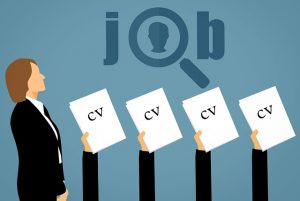You’re in search of a job?
A successful CV, cover letter, or a resume is a key part of the job hunt and may win you the dream occupation.
And here, you’re about to apply to a company and need to create your first personal document, or update an existing one but don’t know where to start.
If so, take a look at our useful tips for an outstanding CV, cover letter, or a resume that will get employers to invite you to interviews.
Table of Contents
Curriculum Vitae (CV)
- Personalise your CV. Consider using an online resume builder like Enhancv.com. Make sure you can be easily contacted by including your name, address, phone number, and e-mail address.
Most important is to let your employer know why you’re applying for the job, how your work will contribute, future career goals. But make sure you don’t go too far. Just 1-2 but substantial are more than enough.
- Relevant experience/training. This is where you should describe all your previous experiences, including internships. In chronological order, mention the companies or the places where you’ve worked and your job positions. A crucial part of this is to give detailed information about your duties, the acquired qualities, and skills.
- Education. Explain about your education from school to college. List the qualifications and grades you achieved.
- In Addition. Share some extra features, like what foreign languages you speak, your interests and hobbies.
Be concise, remove all unnecessary information, put the emphasis on your experience and skills.
Cover Letter
It’s a great idea if your CV is accompanied by a well-written cover letter.
This is where you must be convincing and prove that you’re perfect for the job.
When writing a cover letter, keep it short and straightforward. Customize your letter for each position you apply. Highlight the right experiences. Showcase your skills. Support what you say. Talk about your professional objectives. Explain why you are the right fit. Proofread and edit.
But what information exactly to include?
Again, personal data and the name of the company you apply for, as well as the name of the hiring manager. Put efforts in the introduction to catch the attention of the employer.
Next, talk about how capable you are and give examples from previous experiences. Share what difficulties you had and how you’ve coped with them. You’ll show that you’re reliable and a fast learner. Describe your visions and ideas on how you can be useful for the manager’s requirements.
Show interest, enthusiasm, and thrill about the work. Be careful not to make the letter sounds like you brag.
An important tip: in the cover letter put emphasis on your capabilities and not on how much you need the job!
End with a simple but elegant closing paragraph.
Resume
To start, we advise you to choose the right resume format and layout.
First things first – the resume, similar to the previous personal documents, don’t go without personal contacts. Include contact information – name, phone number, address, and mail. It’s optional to write down your social media profiles. The date of your birth or a photo is unnecessary.
And we got to the essential part of the document, which will make a good first impression if written well.
Resume summary should reveal previous positions and years of experience, achievements, and future work aims.
Resume objective – make a direct and confident statement about your purpose for the job and career in this particular company.
What comes after is the crucial piece – a detailed description of your job experience. Your work history should follow a reversed chronology – start with your last job by sharing:
- Title of your position
- Company and its city
- How long you’ve worked there
- Your responsibilities
- Your performance and wins
Include any kind of experience – from internships, student or volunteer organizations, all-paid jobs to executives and managers with years of work history.
Write about your education. First, mention your school and grades, then university and degree. Don’t forget any other additional course. Share what honours and awards you’ve won.
Skills, related to the job. Simply show what you’re capable of and how much more you can learn to do to be helpful. Describe your communication. management, and organizational skills.
Hobbies, interests, awards, participation in projects, contests, etc. are by your choice but it would be great to include them, too.
A well-written cover letter is a nice addition to a good resume.
To Conclude
Before you send your CV, resume, or cover letter to a hiring manager, first make sure that you’ve done a good job with it by doublechecking. Give it also to a relative or a friend to read it for a second opinion.
And there you go, you have a perfect-written personal document who will make you stand out the other applicants.
We hope that with our help you’ll get your dream job.
Good luck!
Focus on your achievements. List out your qualifications, relevant experience and skills. Cater your resume for the industry.
